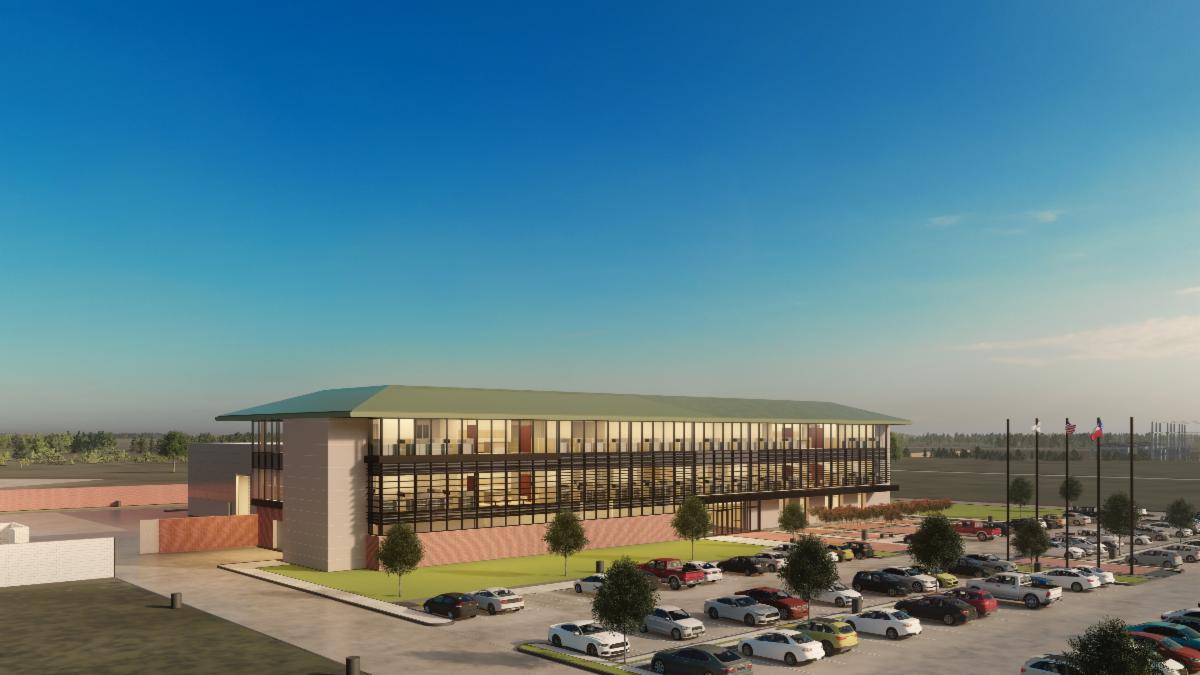The Texas A&M University board of regents approved $79.35 million to advance three projects at the George H. W. Bush Combat Development Complex at the university’s RELLIS campus in Bryan.
At its May 14 meeting, the board voted to amend the university’s capital plan to add the $25 million Ballistic Aero-Optics and Materials (BAM) Facility Project.

Rendering of Bush Combat Development Complex
Once complete, the BAM will feature the nation’s largest enclosed-tube hypersonic testing facility. It will house two highly instrumented 1-kilometer long and 2-meter diameter closed steel tubes to provide opportunities to conduct research pertaining to aero-optic effects on high-energy laser propagation, realistic hypersonic flight conditions, and large-scale hypervelocity impacts. The facility also will have space for a smaller existing 12-meter light gas gun, small offices, fabrication shop, restrooms, and storage and mechanical rooms.
BAM will be an integral part of the research efforts at the George H. W. Bush Combat Development Complex (BCDC) in partnership with the U.S. Army Futures Command.
Board members also approved a $42 million amendment to add innovation proving grounds (IPG) to the complex.
Board members also approved a $42 million amendment to add innovation proving grounds (IPG) to the complex.
The proving grounds project will feature three exterior land and air platform test areas:
- Mobility Challenge Course, an engineered one-mile test course for testing a range of vehicles;
- Off-Road Test Area, an engineered maneuver area that tests prototypes’ ability to operate in a cross-country environment; and,
- Subterranean Test Area, an underground facility for testing navigational capabilities and sensor effectiveness.
The complex will allow soldiers from Fort Hood and the A&M Corps of Cadets to test high-tech prototypes as they are being developed and support the U.S. Army’s efforts to quicken its procurement process.
To prepare for the testing facility and future development of the RELLIS campus, the university board also approved $12.35 million for infrastructure extensions to include electrical, fiber, and domestic water as well as storm water drainage improvements.
